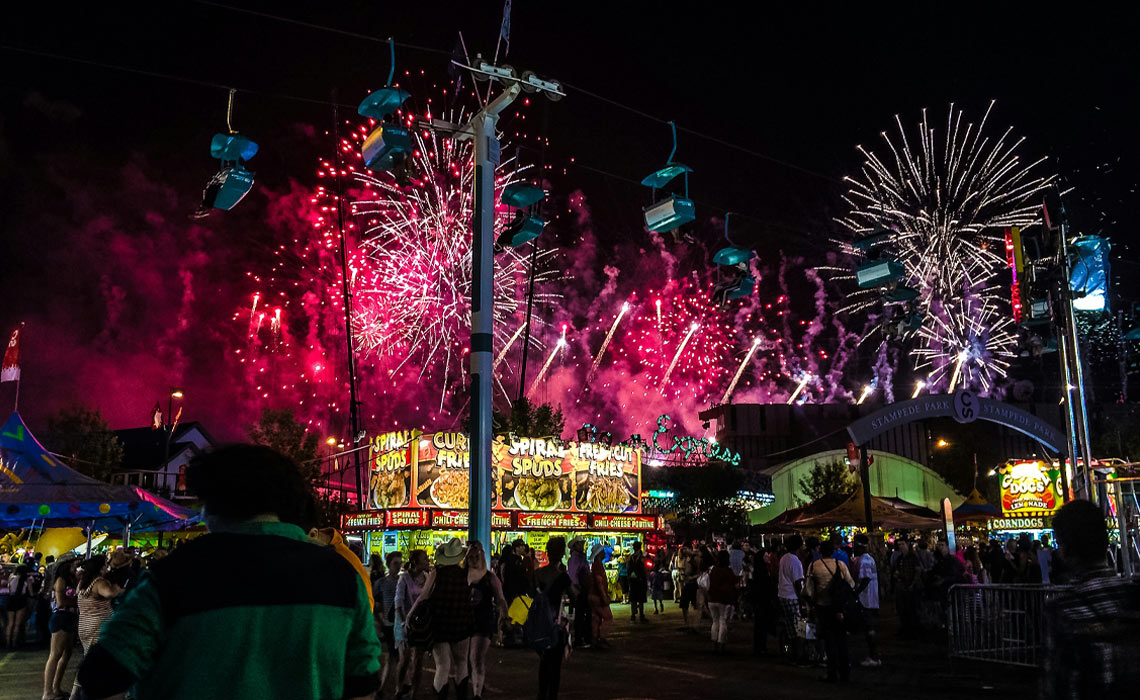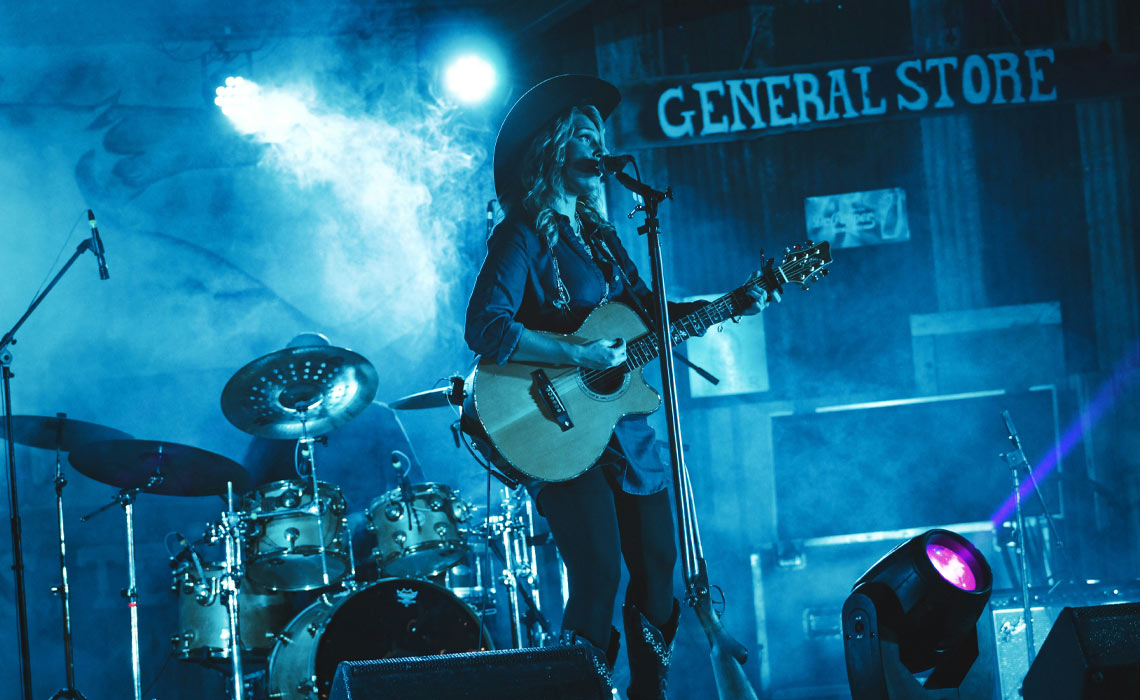The psychological impact (and benefits) of the Calgary Stampede

Calgarians know all too well the magnetic pull of a good summer festival. This isn’t their first rodeo, so to speak. The entire city transforms in the weeks leading up to July in anticipation of the Greatest Outdoor Show on Earth. City slickers don cowboy garb, businesses transform their lobbies into scenes from the Wild West, and it’s universally (albeit, unofficially) accepted that for 10 days, everyone working nine-to-fives will be feeling a little more … under the weather … than usual.
But what is it about a festival like the Stampede that sucks us in? Even the staunchest country music and rodeo haters can’t resist heading down to the Grounds. It’s like our collective brain chemistry is altered when the sun is shining and the breeze is warm. Okay, maybe our brain chemistry isn’t altered, per se, but there is a bit of a psychological explanation. And one of the contributing factors to this shift is a hallmark of Canada — long, cold winters.
“Many of us are in survival mode during the winter months and we may feel isolated from friends and family due to the harsh weather,” explains Department of Psychology assistant professor Dan Devoe, PhD.
“Summer, for many of us, brings a sense of relief and allows for more opportunities to gather together outside where we feel less restricted.”
Canadians being desperate for summer is hardly surprising. Calgary is (almost) famous for having packed patios as soon as a Chinook hits. Anything above zero here is considered patio weather. But gathering outdoors, specifically in the setting of a summer festival like the Stampede, can have benefits beyond just an opportunity to practice your line dancing.
“For some, being social may reduce mental-health concerns, such as feelings of isolation, loneliness and depression/anxiety. For others, being social provides us with a sense of community and the feeling of belonging and connection. These shared experiences provide us social fuel to connect with others,” Devoe continues.
And festivals with live music can have an even bigger impact on us, whether we know it or not.
“Researchers have used electroencephalogram (EEG) — a technique using sensors placed on the scalp to pick up electrical signals from the brain — to help us understand the differences between someone watching a live versus a pre-recorded music performance,” explains director of the MRU Conservatory Terry Clark, PhD.
“When people listen to live music, their brain waves indicate that they are more engaged and more interested in what is happening, versus when they watch a recorded performance. Live music attracts more attention and people are more focused.”

Researchers say music becomes a social communication tool where audience members feel like they are sharing an experience with others in the crowd and with the performers. And for many people, attending a live performance turns into a whole occasion.
“Live music becomes an event. You get dressed up, you meet up with friends and go for dinner or a drink beforehand. And there isn’t much greater an event than the Calgary Stampede when the city gives itself over to revelry for 10 days,” Clark says.
Sure, there are nay-sayers who may be convinced that giving into the revelry isn’t the best course of action, but there’s some merit to dusting off your boots and jumping on the chuckwagon.
“The best way to get the most of any summer festival is to embrace all of the nuances. For example, for the Calgary Stampede, dressing the part by wearing Western wear, eating strange foods and getting your two-step on, are all going to give you a sense of connection to others and belonging,” Devoe says.
“This may help you get a good dose of endorphins, our feel-good hormones, creating both feelings of happiness and feeling more bonded with others.”
In other words, lean in! It’s good for your health!
Plus, being a part of the crowd at summer festivals, Stampede or otherwise, can help validate and even strengthen your own personal identity.
“While the two concepts of personal identity and belonging in a group seem like opposing ideas, they are complementary. One can both build and feel validated in their personal identity while in a group,” Devoe says.
“The validation may come from the group or from personal satisfaction. Finding oneself in a group may also allow you to see and test different concepts that you see in others that you may like to identify with.”
So whether you’re looking for an escape, a good time, or a boost to your mental well being, maybe wrangle up a few friends and hit a summer festival.

